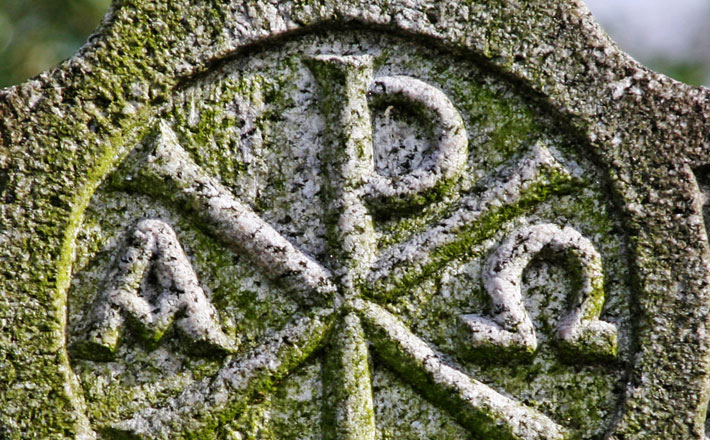Commentary on Psalm 97
Recent scholarly work on the book of Psalms has focused considerable attention on the collection to which Psalm 97 belongs — Psalms 93, 95-99, the enthronement or God-reigns psalms.
According to an emerging consensus, the shape of Books I-III (Psalms 1-89) reflects the rupture of exile, especially by way of the positioning of Psalm 89 that concludes Book III (see especially Ps 89:38-51). In response to this crisis, which involved the loss of land, temple, and monarchy, Book IV opens with the only psalm attributed to Moses, who led the people before they had a land, a temple, or a monarchy. In keeping with the reality that the people of God looked to God as their king during the Mosaic era, Book IV’s major feature is the collection of God-reigns psalms. It is these sorts of observations that led Gerald Wilson to conclude that Psalms 93, 95-99 form “the theological ‘heart'” of the Psalter.1
In terms of the shape of the enthronement collection itself, Marvin Tate suggests a close relationship between Psalms 96 and 97, which he calls “twin-psalms.”2 Psalm 96 concludes with the announcement that God “is coming” (verse 13), and Psalm 97 seems to portray the effects of God’s arrival. These effects involve “the earth” (verses 4-5), as the language and imagery of theophany (which means “God appearing”) suggest in verses 3-5 (see similar descriptions in Exodus 13:21-22; 19:6-20; 20:18-21; 24:16-17; Psalms 18:7-15; 50:3; Micah 1:4; Hebrews 3:3-12). The storm-language — “lightnings” and thunder (“the earth . . . trembles”) — bespeaks the awesome power of God, before which even the “mountains melt,” an observation that connotes not destruction but yielded-ness to God’s sovereign claim.
The effects of God’s arrival also involves the human community, as suggested by the mention of “righteousness and justice” in verse 2. This vocabulary also links Psalm 97 clearly to Psalm 96, which concludes with the affirmation that God “will establish justice (in) the world with righteousness and (among) the peoples with his faithfulness” (verse 13; my translation). This vocabulary also appears elsewhere in the enthronement collection (see Psalms 98:9; 99:4) — in short, as monarchs, both human and divine, are supposed to do (see Psalms 72 and 82), God is coming to set things right in the world over which God is “the Lord” (verse 5).
Psalm 97 is the psalm not only for the seventh Sunday of Easter, but also for Christmas Eve/Day. Reflecting on the use of Psalm 97 at Christmas, Walter Brueggemann offers the following conclusion:
In Christmas the Church does not simply celebrate
the birth of a wondrous baby. Through that birth
we celebrate the cosmic reality that God has
entered the process of the world in a decisive
way that changes everything toward life. The
entry of God into the process of the world is the
premise of the poem in Psalm 97.3
Brueggemann’s mention of life suggests the appropriateness of Psalm 97 for the Easter season. Whatever else it might mean, the resurrection is a validation of what Jesus was born to do, what he lived to do, and what he was killed for doing — that is, proclaiming and embodying the reign of God in a ministry aimed at setting the world right, at revealing the shape of life as God intends it.
The whole sequence of birth, life and ministry, crucifixion, and resurrection contains the recognition that Jesus’ proclamation and embodiment of the reign of God did not go unopposed. Despite the affirmation that the cosmic elements respond positively to God’s reign (see verse 4 where the “mountains melt” and verse 5 where “The heavens proclaim his righteousness”), and that “Zion hears and is glad” (verse 8), Psalm 97 also clearly recognizes that the reign of God does not go unopposed (and, of course, this is understandable if Psalm 97 is a response to the disruption and suffering of exile — see above).
In particular, the concluding section of the psalm recognizes that there is “evil” in the world perpetrated by “the hand of the wicked,” from which God’s “faithful” will need to be rescued (verse 10). The first line of verse 10 is better translated as an admonition, as in the NRSV note (see also the NIV), “You who love the LORD hate evil.” When heard as such, this admonition is capable of addressing the readers of Psalm 97 in every generation, including us.
More particularly, when heard during the season of Easter, we are reminded, in the language of Psalm 97, that the resurrection represents God’s deliverance of Jesus from the power of evil, and God’s shining of light into the darkness of a wicked world (verse 11; see Mark 16:2; John 1:4-5). As for us, the resurrection — an affirmation of God’s reign — is what gives us the courage to hate and to oppose the evil that clearly still exists in our world, as an affirmation and manifestation of our love for God. As James L. Mays concludes concerning Psalm 97: “The psalm’s proclamation of God’s reign offers the righteous hope in their opposition to evil. When the kingdom of God is proclaimed, the righteous take courage.”4
We might also say, “When the resurrection is proclaimed, the righteous take courage.” Guatemalan poet Julia Esquivel describes the hope and courage of those in Guatemala who resisted the right-wing government and its death squads during the prolonged Guatemalan civil conflict by saying that they were “threatened . . . with Resurrection!” Her poem, entitled “They Have Threatened Us with Resurrection,” ends with these words (see Threatened with Resurrection [Elgin, IL: Brethren Press, 1992], 63-65):
Join us in this vigil
and you will know what it is to dream!
Then you will know how marvelous it is
to live threatened with Resurrection!
To dream awake,
to keep watch asleep,
to live while dying,
and to know ourselves already
resurrected!
Such dreaming, such hope, such courage is why Brueggemann sees Psalm 97 as an invitation “to reflect on the transformation wrought by God and the ethical possibility offered us in that transformation.”5 Such reflection that leads to courageous ethical action — to justice and righteousness, to the life that God intends — is certainly an appropriate conclusion to the season of Easter.
1Gerald H. Wilson, “The Use of Royal Psalms at the ‘Seams’ of the Hebrew Psalter,” JSOT 35 (1986):92.
2Marvin E. Tate, Psalms 51-100, Word Biblical Commentary (Dallas: Word, 1990), 508.
3Walter Brueggemann, “Psalm 97: Psalm for Christmas Day,” No Other Foundation 7
(Winter 1986):3.
4James L. Mays, Psalms, Interpretation: A Bible Commentary for Teaching and Preaching (Atlanta: John Knox Press, 1994), 312.
5Brueggemann, “Psalm 97,” 5.


May 16, 2010